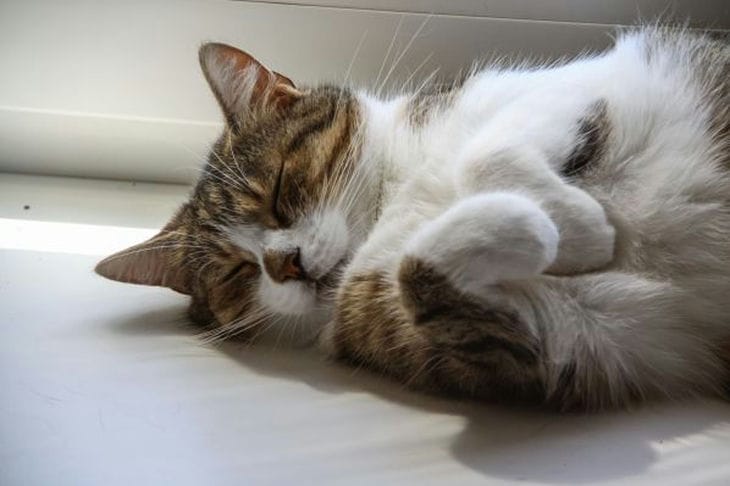Cats often display fearfulness in the most unexpected situations, causing owners to question what exactly makes their pets feel afraid.
Understanding these fears helps create a more comfortable environment for your cat.
Loud sounds and sudden movements
One of the main sources of fear for cats is loud noises. Whether it is a loud door slamming, a vacuum cleaner, or an alarm clock, cats can perceive such sounds as a threat.

Sudden movements, such as quickly raising arms or taking sudden steps, also cause anxiety in cats.
Cats are creatures that need to feel safe, so any sudden change in their usual environment causes them discomfort.
Owners are advised to minimize noise in the house, especially in the presence of the cat, and try to avoid sudden movements near the pet.
Unknown objects and new scents
Cats have an extremely keen sense of smell, and new odors can cause them anxiety.
New furniture, freshly painted walls, scented candles, or even a new shampoo can make your cat anxious. This is especially true for scents associated with animals, as they can be perceived as a threat.
Unknown objects in the house can also cause fear. For example, a new toy or rearrangement of furniture can greatly disturb the cat, as they disrupt the usual environment.
In such cases, it is recommended to gradually introduce the cat to new objects, allowing it to explore them at its own pace.
Unusual people and other animals
Cats are generally wary of unfamiliar people and animals. The sudden arrival of a new family member, guest, or other pet can be a source of stress.
Unfamiliar people and animals disrupt the cat's usual way of life, which causes it to feel anxious and fearful.
Cats need time to adapt to new conditions, so it is recommended to avoid forced introductions to new people or animals.
It is important to allow the cat to choose the moment for the introduction and to give her a space where she can feel safe.
Reflections and shadows
Reflections in mirrors or on glossy surfaces can also be a source of fear for cats.
They may perceive their reflection or the movement of shadows as the presence of another animal, which causes them to feel anxious and insecure.
To reduce stress associated with reflections, you can try limiting your cat's access to mirrors or glossy surfaces, especially if your pet shows anxiety in their presence.
If the problem persists, you should contact a specialist who will help correct the animal’s behavior.
Fear of water
Many cats have a strong fear of water. This may be due to their natural wariness of unknown or potentially dangerous situations.
For most cats, bathing is an extremely stressful experience.
If there is a need to bathe a cat, it is recommended to do so as carefully as possible, using warm water and avoiding getting it on the cat's face.
It is important not to insist on bathing if the cat is clearly unhappy, as this may aggravate its fear.
Toilet problems
An inconveniently placed litter box or one that is incorrectly positioned can cause stress for your cat.
If the litter box is too small, inconvenient, or located in a high-traffic area, your cat may begin to avoid it, causing anxiety.
To prevent such problems, it is important to provide your cat with a comfortable and accessible litter box that is located in a calm and quiet place.
It is recommended to clean the litter box regularly to ensure your cat feels comfortable using it.








